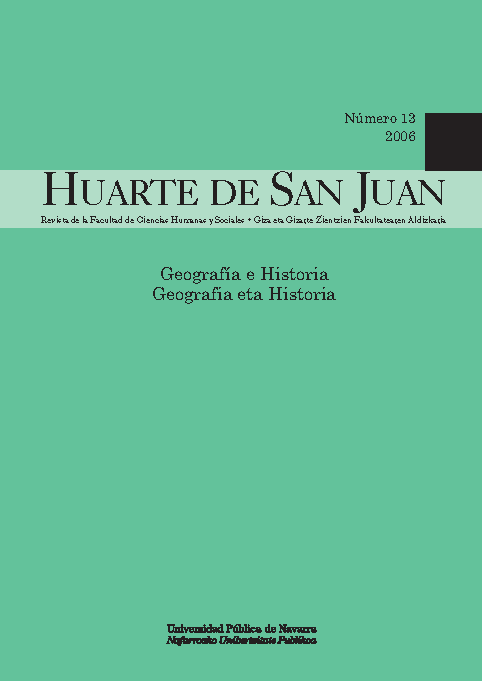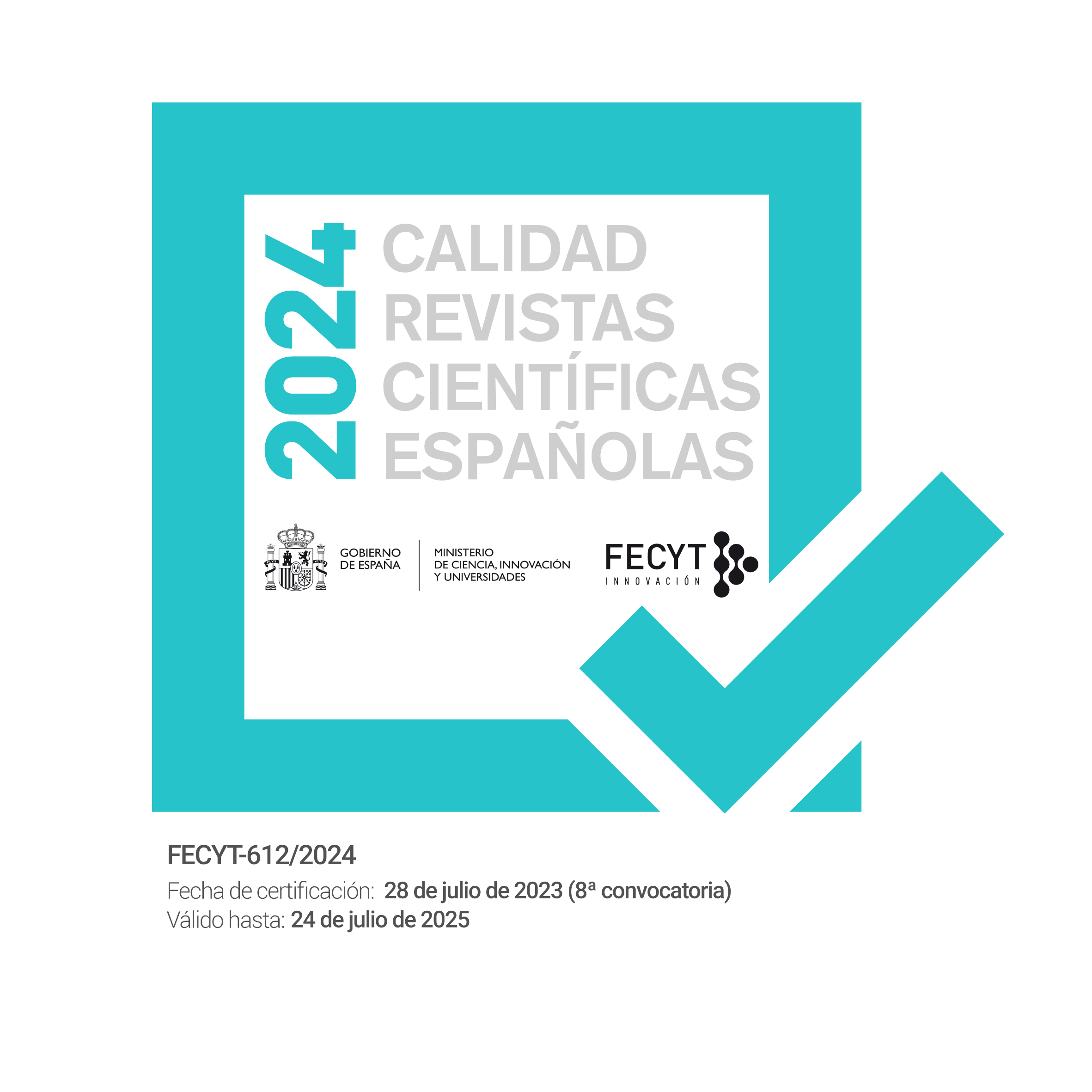¿La democratización de China solucionaría su conflicto con Taiwán?
Resumen
Este artículo analiza si la democratización de China resolvería pacíficamente el conflicto del estrecho de Taiwán. En contra de la visión imperante en Washington y en Taipei, se llama la atención sobre el carácter beligerante de los regímenes en transición y sobre la inaplicabilidad de la teoría de la paz democrática a las guerras civiles. Además, se desaconseja favorecer desde el exterior un brusco proceso de liberalización política, pues dadas las actitudes nacionalistas de la población y del EPL y la debilidad de las instituciones chinas, ello facilitaría la aparición de movimientos nacionalistas agresivos. Por consiguiente, se sugiere al gobierno taiwanés y al estadounidense que favorezcan un proceso de liberalización política gradual en China y que no fíen en dicho proceso de cambio político la solución del conflicto de Taiwán.
Descargas
Citas
ADAMSON, Fiona B.: “Democratization and the Domestic Sources of Foreign Policy: Turkey in the 1974 Cyprus Crisis”, Political Science Quarterly, vol. 116, nº 2 (verano 2001), pp. 277-303.
BENSON, Brett V. y NIOU, Emerson M.S.: “Public Opinion, Foreign Policy, and the Security Balance in the Taiwan Strait”, Security Studies, vol. 14, nº 2 (invierno 2004/05), pp. 274-289.
BI, Jianhai: “The Role of the Military in the PRC Taiwan Policymaking: a Case Study of the
Taiwan Strait Crisis of 1995-1996”, Journal of Contemporary China, vol. 11, nº 32 (agosto 2002), pp. 548-558.
BRECHER, Michael: “Crisis Escalation: Model and Findings”, International Political Science Review, vol. 17, nº 2 (abril 1996), pp. 215-230.
BUENO DE MESQUITA, Bruce, MORROW, James D., SIVERSON, Randolph M. y SMITH, Alastair: “An Institutional Explanation of the Democratic Peace”, The American Political Science Review, vol. 93, nº 4 (diciembre 1999), pp. 791-807.
CARPENTER, Michael: “Slovakia and the Triumph of Nationalist Populism”, Communist and Post-communist Studies, vol. 30, nº 2 (junio 1997), pp. 205-219.
CHANG, Andy G. y T. Y. WANG: “Taiwanese or Chinese? Independence or Unification? An Analysis of Generational Differences in Taiwan”, Journal of Asian and African Studies, vol. 40, nº 1/2 (abril 2005), pp. 29-49.
CHEN, Xiaoyu: The Nationalist Ideology of the Chinese Military, School of Law, University of Maryland, Báltimor, 1998.
CHEN, Jie, SCHEB II, John y ZHONG, Yang: “Political Views from Below: A Survey of Beijing Residents”, Political Science and Politics, vol. 30, nº 3 (septiembre 1997), pp. 474-482.
CHRISTENSEN, Thomas J.: “Taiwan’s Legislative Yuan Elections and Cross-Strait Security Relations: Reduced Tensions and Remaining Challenges”, China Leadership Monitor, nº 13 (invierno 2005).
DAHRENDORF, Ralf, Reflections on the Revolution in Europe, Random House, Nueva York, 1990.
DESCH, Michael C.: Civilian Control of the Military: The Changing Security Environment, Baltimore, Johns Hopkins University Press, 1999.
DITTMER, Lowell: “Taiwan’s Aim-Inhibited Quest for Identity and the China Factor”, Journal of Asian and African Studies, vol. 40, nº 1/2 (abril 2005), pp. 71-90.
DITTMER, Lowell: “Kant, Liberal Legacies, and Foreign Affairs, Part 1”, Philosophy and Public Affairs, vol. 12, nº 3 (verano 1983), pp. 205-235.
DITTMER, Lowell: “Kant, Liberal Legacies, and Foreign Affairs, Part 2”, Philosophy and Public Affairs, vol. 12, nº 4 (otoño 1983), pp. 323-353.
DUMBAUGH, Kerry B.: “Taiwan: Recent Developments and US Policy Choices”, CRS Issue Brief for Congress, 8 (March 2005).
FANG, Ning, MA, Linjun y WANG: Bingquan, Chengzhang de Zhongguo: dangdai zhongguo qingnian de guojia minzu yishi yanjiu (China en crecimiento: investigación sobre la identidad nacional y étnica de los jóvenes chinos actuales), Renmin chubanshe, Pekín, 2002.
GARVER, John W.: Face Off: China, the United States, and Taiwan’s Democratization, Seattle, University of Washington Press, 1997.
GILLEY, Bruce: China’s Democratic Future: How it Will Happen and Where It Will Lead, Nueva York, Columbia University Press, 2004.
GOLD, Thomas “Identity and Symbolic Power in Taiwan”, GANG, Lin (ed.): “The Evolution of a Taiwanese National Identity”, Asia Program Special Report, nº 114 (agosto 2003).
GORDON, Carol y ARIAN, Asher: “Threat and Decision Making”, Journal of Conflict Resolution, vol. 45, nº 2 (abril 2001), pp. 196-215.
HAO, Zhidong: “Obstacles to Integration: What Would it Take to Reconcile People on the Two Sides of the Taiwan Strait”, Issues and Studies, vol. 42, nº 1 (marzo 2006), pp. 47-80.
HENSEL, Paul R., GOERTZ, Gary y DIEHL, Paul F.: “The Democratic Peace and Rivalries”, The Journal of Politics, vol. 62, nº 4 (noviembre 2000), pp. 1173-1188.
HUNTINGTON, Samuel P.: Political Order in Changing Societies, Yale University Press, New Haven, 1968.
HUTT, Paul K. y ALLEE, Todd L.: “Domestic Political Accountability and the Escalation and Settlement of International Disputes”, Journal of Conflict Resolution, vol. 46, nº 6 (diciembre 2002), pp. 754-790.
KANT, Immanuel: “Towards Perpetual Peace. A Philosophical Project” (1795), en REISS, Hans (ed.), Kant. Political Writings, Cambridge, Cambridge University Press, 1991.
KASTNER, Scott L.: “Ambiguity, Economic Interdependence, and the US Strategic Dilemma in the Taiwan Strait”, Journal of Contemporary China, vol. 15, nº 49 (noviembre 2006), pp. 651-69.
La Casa Blanca, The National Security Strategy of the United States of America: (http://www.whitehouse.gov/nsc/nss/2006/nss2006.pdf).
LAM, Willy W. L.: The Era of Jiang Zemin, Nueva York, Prentice Hall, 1999.
LI, Nan: “PLA Conservative Nationalism”, en FLANAGAN, Stephen J. y MARTI, Michael E. (eds.), The People’s Liberation Army and China in Transition, Washington, National Defence University, 2003, pp. 69-89.
MACMILLAN, John: “Liberalism and the Democratic Peace”, Review of International Studies, vol. 30, nº 2 (abril 2004), pp. 179-200.
MANSFIELD, Edward D. y SNYDER, Jack: “Democratization and War”, Foreign Affairs, vol. 74, nº 3 (mayo/junio 1995), pp. 79-97.
MANSFIELD, Edward D. y SNYDER, Jack: “Incomplete Democratization and the Outbreak of Military Disputes”, International Studies Quarterly, nº 46 (diciembre 2002), pp. 529-549.
MANSFIELD, Edward D. y SNYDER, Jack: “Democratic Transitions, Institutional Strength and War”, International Organization, vol. 56, nº 2 (primavera 2002), pp. 297-337.
MAOZ, Zeev y RUSSETT, Bruce M.: “Normative and structural causes of democratic peace, 1946-1986”, American Political Science Review, vol. 87, nº 3 (septiembre 1993), pp. 624-638.
MARHS, Robert M.: “Taiwan’s Future National Identity: Attitudes and Geopolitical Constraints”, Comparative Sociology, vol. 41, nos 3-4 (agosto 2000), pp. 299-314.
POSEN, Barry R.: The Sources of Military Doctrine: France, Britain, and Germany between the World Wars, Cornell University Press, Ithaca, 1984.
PRZEWORSKI, Adam: Democracy and the Market: Political and Economic Reforms in Eastern Europe and Latin America, Nueva York, Cambridge University Press, 1991.
RUSSETT, Bruce M.: Grasping the Democratic Peace: Principles for a Post-Cold War World, Princeton, Princeton University Press, 1993.
SAGAN, Scott D. y WALTZ, Kenneth N.: The Spread of Nuclear Weapons: A Debate Renewed, Norton, Nueva York, 2003.
SCOBELL, Andrew: “Show of Force: Chinese Soldiers, Statesmen, and the 1995-1996 Taiwan Strait Crisis”, Political Science Quarterly, vol. 115, nº 2 (verano 2000), pp. 227-246.
SECHSER, Todd S.: “Are Soldiers Less War-Prone than Statesmen?”, Journal of Conflict Resolution, vol. 48, nº 5 (octubre 2004), pp. 746-774.
SNYDER, Jack: From Voting to Violence: Democratization and Nationalist Conflict, Nueva York, W.W. Norton & Company, 2000.
STENSETH, Leni: Nationalism and Foreign Policy: the Case of China’s Nansha Rhetoric, Oslo, Department of Political Science University of Oslo, 1998.
SUTTER, Robert: “The Taiwan Problem in the Second George W. Bush Administration – US Official’s Views and Their Implications for US policy”, Journal of Contemporary China, vol. 15, nº 48 (agosto 2006), pp. 417-441.
SWAINE, Michael D.: “Trouble in Taiwan”, Foreign Affairs, vol. 83, nº 2 (marzo/abril 2004), pp. 39-49.
SWAINE, Michael D.: China: Domestic Change and Foreign Policy, Santa Mónica, RAND, 1995.
TEO, Eric Chu Cheow: “Rising Chinese Nationalism over the Taiwan Question”, Association for Asia Research, 14 de mayo de 2004 (http://www.asianresearch.org/articles/2048.html).
TISMANEANU, Vladimir: Reinventing Politics. Eastern Europe: From Stalin to Havel, The Free Press, Nueva York, 1992.
VAGTS, Alfred: A History of Militarism, Norton, Nueva York, 1937.
WALT, Stephen M.: “The Search for a Science of Strategy: A Review Essay”, International Security, vol. 12, nº 1 (verano 1987), pp. 140-165.
WEI-CHIN, Lee: “Taiwan’s Cultural Reconstruction Movement: Identity Politics and Collective Action since 2000”, Issues & Studies, vol. 41, nº 1 (marzo 2005), pp. 1-51.
WEITSMAN, Patricia A. y SHAMBAUGH, George E.: “International Systems, Domestic Structures and Risk”, Journal of Peace Research, vol. 39, nº 3 (mayo 2002), pp. 289-312.
WHITE, Stephen: “Economic Performance and Communist Legitimacy”, World Politics, vol. 38, nº 3 (abril 1986), pp. 462-482.
WHITING, Allen S.: “Chinese Nationalism and Foreign Policy after Deng”, China Quarterly, nº 142 (junio 1995), pp. 295-316.
XU, Guangqiu: “Anti-Western Nationalism in China, 1989-1999”, World Affairs, vol. 163, nº 4 (primavera 2001), pp. 151-162.
YANG, Te-yu: “The Perception of Threats and Pragmatic Policy Choice: A Survey of Public Opinion in Taiwan”, Issues & Studies, vol. 41, nº 1 (marzo 2005), pp. 87-111.
YOU, Ji: “Making Sense of War Games in the Taiwan Strait”, Journal of Contemporary China, vol. 6, nº 15 (julio 1997), pp. 287-305.
ZINNES, Dina A.: “Constructing Political Logic: The Democratic Peace Puzzle”, Journal of Conflict Resolution, vol. 48, nº 3 (junio 2004), pp. 430-454.
Descargas
Publicado
Cómo citar
Número
Sección
Licencia
La información referente al sistema de autoarchivo y política de derechos de explotación establecido por esta revista puede consultarse en DULCINEA.








